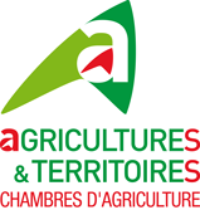Document type : Activity report from the Laboratoire d'Innovation Territorial Ouest Territoires d'Elevage (LIT Ouesterel)
Authors: LIT Ouesterel
Preview: By the end of 2020, the Association will have 53 members and the membership list continues to grow.
Its purpose is to find a way to better align livestock farming practices with public opinion by improving the welfare of farm animals, reducing the use of antibiotics in livestock farming without compromising animal health, and improving the working and living conditions of those involved in the animal production sectors, and is more relevant than ever. This is particularly the case in the three regions of Western France where the association's work is concentrated, given the economic, social and societal importance of the animal sectors in this wider area.
Its operates through a process of co-construction within the open innovation framework provided by the living lab. The process is flexible and can take into account the often contradictory expectations of the various stakeholders, recognising that any agreement in this context calls for listening, dialogue and compromise between participants. This method of working is costly, particularly in terms of the time that must be spent listening to arguments put forward by others, including and perhaps especially those that are not immediately shared by the listeners. This is the price to be paid for re-establishing a sustainable future for the animal production sectors of Western France. We can also note, with satisfaction, the increase in the number of living lab initiatives for agriculture, agri-food and food at the national, European Union and international levels. The cost of these efforts in the short term will translate into medium- and long-term benefits because, should society not find the conditions of animal production acceptable, there will be no future for farmed animals. And there will equally be no future for the animal production sector if the businesses involved, from producers to distributors, are not part of any change.
In addition to the work being carried out on the Santé et Bien-Etre Animal (Sanimal welfare) technical guidelines on animal health and welfare, which make it possible to identify the priority areas for improvement and progress – a preliminary version of these guidelines already exists for broiler chickens and another is being developed for pigs – other actions are now well underway. These include 'co-construction' of animal health and welfare solutions and the monitoring of innovative practices, whether these emanate from practitioners in the field (bottom-up innovations) or are the result of public and private work in research, development and innovation (top-down innovations). At the same time, targeted project work on particular innovations in animal health and welfare has begun. All in all, the year 2020 has been put to good use to get the Association moving in the right direction.
Download the report via this link






